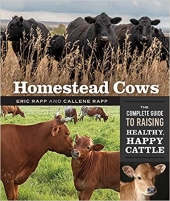What an incredibly complex topic! Finances and farming go hand in hand. With money being number one. But that doesn't mean it also can't feel good and be good for the planet. I work and live on two different farms, of which I will give examples and number$ for you.
Business first, Farmer second. Anything else is called Gardening.
I think the only people making the best profit margin in Permaculture are Designers and Consultants. Any service based skill is going to be valued highly.
The profitible farms that I work on and know of are all doing something
permaculture-esque, and most without perennial systems. Why? A lot of reasons, which may be a topic for another post. But mostly because there is a ton of money selling people what they want through Farmers Markets in any semi-affluent community in the United states. Thee good money and lower overhead to startup and grow annual vegetables as a business in most markets is very tempting. It's also very difficult and complex to maintain a healthy system of annuals. Not impossible, but a Farmer must behave artfully and skillfully or a pest outbreak is imminent. Nature doesn't like infinite annuals, but She'll allow it.
I live on a farm called Shared Abundance, run by an amazing woman who is turning 75 years in a few months. The farm is 25 years old. It has been increasingly profitable for 25 years, the first 5 years being very very difficult, as for most start-up's. I live in the 14' yurt. I do not work for this farm, I only live here.
Album for Shared Abundance Farms:
https://photos.app.goo.gl/BLyXSnCEkpgMQzf29[/img]
From 14 acres of wild permaculture neglect, she grosses about $150k per year (didn't ask her Net). She sells about $100k in kiwi, and the other $50k in berries, grapes, mixed veg and propagated starts of rare herbs and tomatoes. This is not a lot of money farming, at least where we live in the Sacramento region. She has four employees. One bad year and it's usually toast for small farms like hers. But when she was younger, she only needed one employee, as she did the rest. She is facing a very big problem in America: The problem of Aging Farmers.
There is seems to be no current way to sustain oneself in modern America by trying to compete with the mainstream market (ie, where most of the money is).
I believe that most of us are willing to simply drop out of the system if there was a concrete viable way to do so.
Truth is, each person makes their own way.
We must be the Farmer, and then do the Market maybe twice per week, also hire people, and be a good boss for others.
Some people eat it up and love being farmers. I count myself one of them and I know I'm not alone.
There are some freaky wonderful plant people everywhere making money to make end meet and living good enough lives financially but mostly are just happy.
Where I work is different that where I live.
Album for Hillview Farms:
https://photos.app.goo.gl/u1UVBrwjF1CZUPB38
I am currently working on a profitable farm called
Hillview Farms in the hills of Auburn, CA.
Hillview is "Beyond-Organic" and CCOF. We are a wealthy community of the mostly Red persuasion. From here, I see the demand for fresh, beautiful organic food has risen to the point where even grumpy old men like my dad would go to a Farmers Market and happily spend money for vegetables. The awakening is truly upon us! :)
We are
no-till, and we only grow annuals.
Mostly lettuce, carrots, and squash and tomatoes as 80% of our income. Then a mix of about 45 other vegetables, with the owner, Michael, really loving to experiment and be open to trying things out.
Growing all annual veg all year long is not very permaculture. I would say the only way we intentionally "incorporate animals" is by adding NPK from Chicken meal/bone. We are quick flip veg all year long, with short rest periods per bed. No cover crops because they drop the profit margin of the businesss to failure. I have yet to see a way it can be done in annual systems, but I'm keeping my eyes open to something we've overlooked. I'd love to hear how others have dealt with Annual production that follows through to a regular profitible customer base. I know it must be being done somewhere!
Yet we use no pesticide chemicals that aren't either 1 Made of plants (ie pyrethrins and Neem) or 2. Good bugs as our IPM (Integrated Pest Management). This earns us a special title in the CCOF as "Beyond Organic".
If you are wondering about labels, it's to make the point that they are simply marketing. It's a way to differentiate yourself at market and have a talking point. Other than that, you still need to
farm hard and
sell veg/fruit/meat/eggs/etc if you gonna make it as a business.
We still have most Supermarkets that won't play with a small Farmer so alternate markets need be found.
We do 2 Farmers Markets per week, and have wholesale customers in the region. Each is about 50% of the income for the property. Our beds are 100' X 2.5' with 1.5' walkways. We seek to earn $2000/bed/year, but the last few years have been wild weather and nothing is as it was post-covid. Since we have 220 beds we aim for about $200k a year in veggies which pays for farm overhead, 4 full time employees and 2 part time employees, and maybe the Farmer gets paid at the end.
The wholesale redistributors are about 50% of our sales, sometimes more, sometimes less.
For this model, seek first the vegetable hubs in the area that serve to the restaurants as middle men with a more diverse offering than your farm can.
Every city or region has one, and many will pay for "weird things" like duck eggs, or fresh single variety pork, or asparagus. As long as you can provide some kind of supply to them all year long. Most of them aren't going to buy from someone who just has a bunch of tomatoes once a year.
We work with The Food Hub and others that are paying us directly, at a wholesale cost in bulk.
Pro-tip: Set minimums for any order working with Wholesalers and set really good boundaries or you will eventually burn out and die.
From my experience farming/ranching in CA for only the last 5 or 6 years is that most successful, profitable Farmers/Ranchers have NO TIME AT ALL for Social Media.
Some of the better organized ones will hire a company, or they might have a young employee that can use one of the dang cell phone thingies to do some videos for marketing or to teach.
I always like watching Stefan Sobkowiak videos. His teaching has brought me much joy. But while there are maybe dozens doing similar things, there are too few people like him. Willing to do so much running a business and also running an Orchard/Farm/Ranch etc.
Love to hear all your thoughts on this and more war stories from farmers please!
In kindness, Skot






